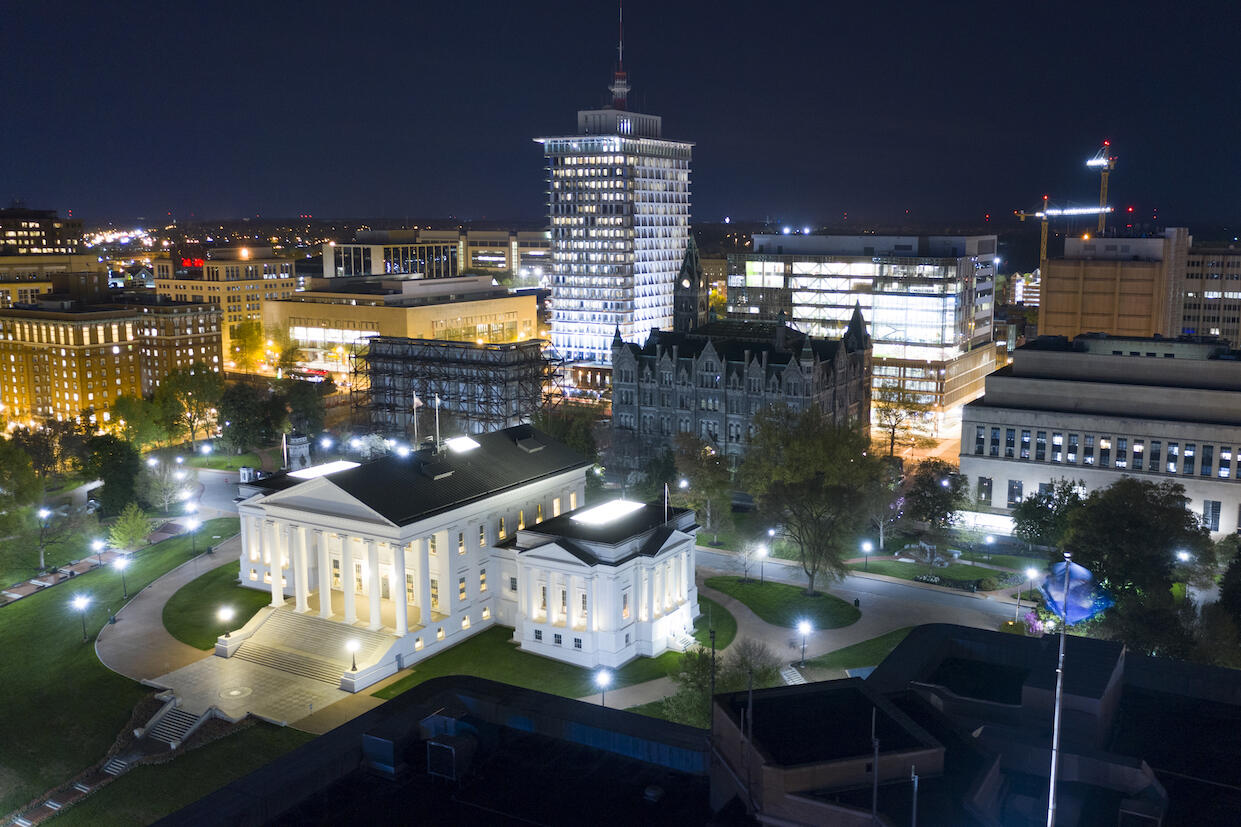
Jan. 11, 2022
Virginians want the General Assembly to focus on education and the economy in 2022
Share this story
FOR IMMEDIATE RELEASE
CONTACTS: L. Douglas Wilder
Phone: (804) 827-0776
Email: ldwilder@vcu.edu
Robyn McDougle
Associate Dean for Research and Outreach
Phone: (804) 721-6703
Email: rdmcdougle@vcu.edu
As the Virginia General Assembly prepares to start the 2022 legislative session, a new statewide Commonwealth Poll conducted by the L. Douglas Wilder School of Government and Public Affairs at Virginia Commonwealth University finds that Virginians want legislators to focus on education and the economy.
Education
Virginians were in agreement on the negative impacts of remote learning during the COVID-19 pandemic, with 79% of respondents feeling that attending school remotely resulted in K-12 students falling behind. Conversely, 13% felt that remote learning had no effect on academic achievement generally, and 3% of respondents felt that attending school remotely helped students get ahead. From a health perspective, 60% of Virginians felt that attending school remotely had negative health impacts on school-age children, while 25% felt that there were positive health impacts. An additional 10% felt that there were no health impacts at all.
In addition, the negative impacts of remote learning and limited in-person education options highlighted the debate associated with funding and expanding charter school access. More than half of Virginians (52%) supported increasing the number of charter schools in the state, while 34% opposed an increase. As a key component of Gov.-elect Glenn Youngkin’s education platform, this will likely continue to be a heavily debated topic.
Additionally, public school curriculum and critical race theory were also discussed throughout the gubernatorial campaign. Over 70% of Virginians believe that public school curriculum should be developed by parents, teachers and members of school boards working collaboratively. Fourteen percent said parents should be responsible for developing school curricula, 9% said teachers only, and 5% said school boards only.
Three in 4 respondents reported hearing about critical race theory. Over half of respondents (52%) do not think critical race theory is being taught in K-12 schools in Virginia while 26% believed it is being taught as part of the approved curriculum, and an additional 22% didn’t know if it is being taught. When asked if critical race theory should be taught in K-12 public schools in Virginia, 40% of respondents said no, 28% said yes, and 30% reported that they did not have enough information to decide.
“Our school’s poll results are not surprising, it might suggest the trend for the midterm elections this year. Education is and always has been at the top of voter concerns. Respondents indicate that parents want their schools open with proper safeguards. Virtual learning is seen as harmful overall to the students. Parents want to know more about critical race theory and to participate in who determines what is taught to their children,” said former Gov. L. Douglas Wilder.
Economy and jobs
On the economy, Virginians expressed a wide range of explanations for the historic number of Americans who have voluntarily left their positions over the past 12 months. About 1 in 5 respondents (17%) reported personally quitting or starting a new job in the past 12 months, and 28% said they are likely to leave their current job in the next 12 months.
Over one-third (36%) of respondents attributed this behavior to receiving an increase in unemployment benefits from the government. Almost one quarter (24%) felt that Americans are reassessing their lives and their priorities in terms of work and family, and 14% believed this behavior could be explained by historically low wages. Additional explanations included vaccine mandates, poor work ethics and the high cost of child care.
Redistricting commission
Another policy debate occurring over the past 12 months revolved around the Virginia Redistricting Commission. Over half of respondents (54%) were aware of Virginia’s bipartisan commission to redraw the state’s electoral maps. When notified that the commission had been unable to accomplish the redrawing of the maps, 44% of respondents felt the makeup of the members of the independent commission were responsible, while 23% felt that Republicans were responsible and 17% felt that Democrats were responsible.
For the full poll results and analysis, visit https://rampages.us/commonwealthpoll/.
Subscribe to VCU News
Subscribe to VCU News at newsletter.vcu.edu and receive a selection of stories, videos, photos, news clips and event listings in your inbox.







